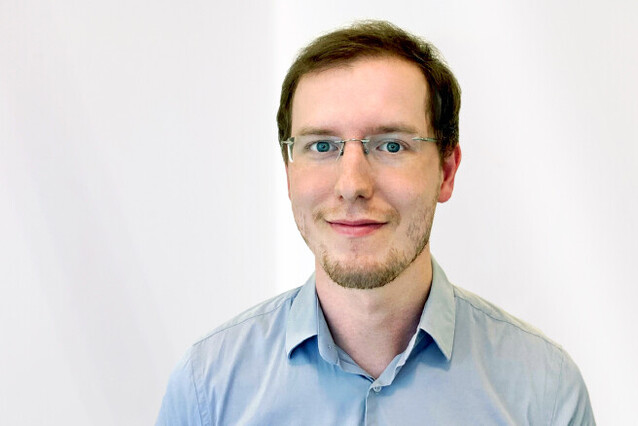Moritz Gaidt to study innate immunology at IMP
Moritz Gaidt, previously a postdoctoral researcher at the University of California in Berkeley, has joined the IMP as a group leader. The Gaidt Lab will study the innate immune system using functional genomics, strengthening the IMP’s community of immunologists further.
The lab of Moritz Gaidt will study how the “tug of war” between the innate immune system and pathogens works on a molecular level. Pathogens are often detected when some of their microbial components bind to PRRs (germline-encoded pattern recognition receptors). These receptors trigger the immune system to induce defence mechanisms such as inflammation – mechanisms that the pathogens in turn seek to overcome.
Much of the work will involve forward genetics and CRISPR screens in vitro, using human cell lines as the main model, with some findings probably to be validated in vivo with mice, according to Moritz.
What made him choose immunology as his research interest in the first place? “A bit of chance and serendipity”, he says. “When I started as an undergraduate, I studied chemical biology. Later I switched to an immunology lab and I found it mindboggling how little we understand of the immune system. I like that there is so much room for discovery. I also enjoy the power of genetics: it allows for high-impact work.” More specifically, Moritz is particularly drawn to inflammation. He points out that research in recent years has unveiled a novel link between inflammation and many conditions - for example neurodegenerative diseases. He is convinced that big therapeutic promise lies in studying this subject.
Building a diverse lab that ties in well
Moritz started his studies at the University of Bonn in his native Germany, where he also joined the lab of Veit Hornung for his masters. He moved with the Hornung Lab as a PhD student when it transferred to Ludwig-Maximilian University Munich.
Recruited remotely at the peak of the pandemic, Moritz first saw the institute upon his start. Now that he made it to Vienna, he is full of praise for the IMP and the Vienna BioCenter: “The IMP is a great resource for anyone working here. The infrastructure is beyond impressive, the colleagues are fantastic, and the funding is as good as one could hope for. But also, I think my research questions will fit in very well: for my PhD, I studied the inflammasome, a proteolytic cascade with virtually no transcriptional role; for my postdoc, I studied transcriptional mechanisms of the immune response. With the transcriptional legacy of the IMP – and the cancer expertise in labs here – I think the IMP will provide the ideal environment to link these two aspects.”
Moritz spent the past three years as a postdoctoral researcher in the lab of Russel Vance at UC Berkeley. There especially, he came to appreciate the value of diverse work environments. Moritz now encourages in particular scientists from underrepresented backgrounds to consider joining his lab. “I was lucky to have excellent mentors throughout my career”, he says. “I will now do my best to take the things I liked about the guidance I experienced and put it to use helping young scientists develop into independent thinkers.”
